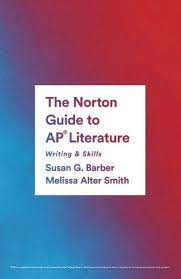Thesis statements are tricky. Maybe that’s because there’s so much pressure riding on them. How do you distill all of the ideas of an essay into one or two sentences? It has also been said that the thesis statement is a road map, marking the path of an essay and guiding the reader through the points of the body paragraphs.
I think that intimidates the heck out of students.
A Better Way to Approach Thesis Statements
A thesis statement, in its simplest terms, is a statement. That’s a nice starting point. Instead of conveying all the implications above, and scaring students, just start by saying, I want you to make a statement.
They can handle that.
They like to make statements with their clothes or their taste in music. In doing so, they express something about who they are and how they see things. This isn’t that much different. They are going to express something, an opinion.
That’s the next step… to have an opinion.
If our goal as writing instructors is to teach our students how to write, not what to write, then we must preach that they express their own ideas. And it all starts with the thesis. They must make a statement that comes from their own thinking and understanding. They must write for themselves. Unfortunately, most student write based on what they think their teacher wants to hear.
Years of experience back this up. Each spring I spend a week grading the AP Literature exam essays. Over the course of the seven days, I typically grade 1,100-1,300 essay. The ones that stand out check off the same boxes — insightful and original thesis, perceptive analysis, well-appointed textual support, and a strong and confident voice. The lower-half essays do just the opposite.
What a Thesis Should Do
A more advanced, but still not intimidating, way to think about the thesis is to view it as engine of the essay. That’s something that can all understand and relate to. After all, high school kids want to drive everywhere. With a car, the engine converts energy into power, making all the other parts move. The engine propels it forward. The same is true of a good thesis. It moves the argument or opinion forward. It makes all the other parts of the essay turn.
Our students have the keys to a powerful engine that will move the reader.
They are in control.
And they get to decide where the reader is going.
That’s different than a roadmap with landmarks and coordinates already plotted and submissively followed. An engine gives them the freedom to go where they want.
The Finer Qualities of a Thesis
- It moves from the general to the specific
- It has insight
- It is original
- It answers the prompt
An Example of a Rock-Solid Thesis
Here’s a prompt I gave my students this week:
Chapter 26 of How to Read Literature Like a Professor questions, “Is He Serious? And Other Ironies.” Using Foster’s text as a guide, analyze the use of irony in 1984 and connect its purpose to the meaning of the work as a whole.
A Sample Weak Thesis
Here is a formulaic, superficial thesis that our students need to avoid.
In George Orwell’s futuristic novel, 1984, irony plays a major part and affects many of the novel’s plot twists, contributing to the development of the story and the meaning of the work as a whole.
Let’s poke some holes for a second. There are two glaring weakness with this thesis statement:
1. It basically repeats the prompt, hiding the true voice of the writer.
2. There no insight, and perhaps worse, there is no demonstration that this writer has read 1984.
A Stronger Thesis
In the novel 1984, Winston feels the incongruity between appearance and reality in this supposed utopia, but as he crusades against the psychological manipulations of the party he ultimately is doomed to conform to its power.
What makes this better?
- It start with general ideas — in the novel 1984 — but it quickly identifies specific elements by naming a character, mentioning the utopia, and identifying the goals of the party.
- It has insight because it argues that Winston is aware of the irony that exists between the party’s propaganda and reality, but it sets up the bigger irony of the crusader that is doomed to love Big Brother.
- It answers the prompt by identifying the irony — the supposed utopia — and connects that irony to the meaning of the work as a whole — psychological manipulation as a tool to maintain power.
Writing a Killer Thesis Statement
My class drafted that thesis statement during a mini lesson that connected 1984 and How to Read Literature Like a Professor.
Writing a good thesis statement is the result of two simple actions:
- understanding what the prompt is asking
- asking questions of yourself to develop insightful responses to the prompt
This prompt had two parts:
- The role of irony in 1984
- How that irony factors into the work as a whole
Here are the questions we asked in class during the mini lesson:
- What are some of the examples of irony in 1984? — The party slogans, the utopia/dystopia disconnect, the ministries, doublethink, the acts of betrayal.
- Are these examples limited or pervasive? They are pervasive
- Why has the party created a society in which these things are pervasive? Because it feeds their purpose, which is to have psychological control over its citizens. The more the party slogans are repeated and the more doublethink occurs, the more a person loses their humanity and becomes part of a herd mentality.
- Why does the party want to strip people’s humanity and exert psychological control? It is how they can maintain totalitarian power.
When you progress through a sequence of questions that feed upon each other, you arrive at insightful conclusions that can be pieced together to form an outstanding thesis.













One comment
MsBallin
Analyze “the use of irony”, or simply “analyze the irony” in 1984?